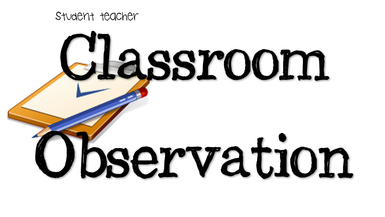LESSON OBSERVATION SCHEDULE
Student Teacher: Özlem ÖZKANClass: 8- A/B
Date: 21.10.2015
Lesson: English
Number of Students: 24 – 26
Focus: Grammer-based lesson
Lesson Objectives: At the end of the lesson, students will be able to use Simple Present Tense and prefer …to structure.
Lesson Planning: Actually there is no lesson plan prepared before the lesson because the teacher follows the coursebook very strictly so the lesson is shaped according to it.
Beginning: Firstly the teacher gave information about the upcoming English exam. And then, she started the lesson very quickly. There is no warm-up session or something like that.
Teaching Methods: The teacher followed the coursebook. And it includes matching, ordering conversation and fill-in-the-blanks exercises…
Transition between activities: The teacher did not use any smooth transition activity. She just gave instruction of the next activity and went on the lesson.
Managing students:
-- How does the teacher manage the behavior of students?
- Firstly she warned them very kindly. If they keep on making noise, the teacher used high voice. They are really so spoiled children that she sometimes even shouted.
- Actually there is no motivation resource for students. The teacher just reminded them the upcoming TEOG exam.
- The activities was individual ones. So the students answered the questions one by one.
- No, she didn’t use any praise except for saying ‘yes’ for acknowledging the right answers.
- She just warned them.
- Tone of her voice is similar while conducting the lesson. She just raised his voice for warning the students. She walked around the room while teaching the lesson. Except for this, she did not even use her body language.
Lesson ending: She gave assignment to the students and to look forward she said that they will progress quickly to be able to complete the subjects.
Evaluating student work: She uses written exam for evaluating the students.
CLASS MANAGEMENT SCHEDULE
Date: 21.10.2015 Class: 8- A/B Time: 11:30 (the last 4 lessons)Before Lesson: She said she does not use any pre-planned lesson plan.
The beginning:
-- How does the teacher draw the attention of the ss?
- Actually in this lesson she was trying to complete the subjects so she warned the students posing problem and making noise and even if she couldn’t draw their attention she continued the lesson with students who are eager to learn.
- She began the first activity after the class was ready to learn.
- There was not any student who came lesson lately.
- She tried to draw their attention orally and by warning them.
- Yes, the teacher knows the students’ name.
- Yes, her instructions was clear actually because she is using L1.
- Yes, she is looking at the students when speaking to them.
- No, she didn’t turn her back to her class.
- She sometimes walked around but generally stay at the front.
- No, I think she doesn’t give importance to the activity transitions.
- Partially yes. She asked the students: What was this word’s meaning?
- Yes, in the beginning of the lesson she is trying to spread questions round the class but afterwards she continued the lesson with students who did their homework and knew the answer.
- No, we can’t say she praised them she just nodded his head for the right answer.
- Yes, she facilitated the activities by giving explanations in their mother tongue.
- Yes, she acted quickly.
- Yes, she avoided confrontation which she cannot win.
- No, actually she focused on the person who arose the problem.
- Yes, she clarified.
- She didn’t give any punishment.
- Yes, she gave enough time.
- No, she didn’t.
- Yes, she did.


